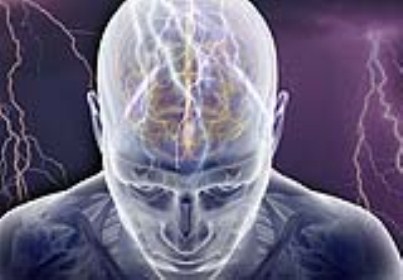 smaller medium larger Kids With Epilepsy Face Higher Early Death Risk, Study Reports (Visit Count : 8553)
smaller medium larger Kids With Epilepsy Face Higher Early Death Risk, Study Reports (Visit Count : 8553)
Children with epilepsy have an increased risk of dying prematurely, according to a new U.S. government report.
The study found that for children up to 18 years old with epilepsy, the annual risk for death was 0.84 percent, compared with 0.22 percent for children of the same ages without epilepsy, according to the U.S. Centers for Disease Control and Prevention.
"Deaths are related not so much to the epilepsy itself, but more from other causes," said study co-author Dr. Matthew Zack, a medical epidemiologist in CDC's division of population health.
Zack said many of the deaths are related to conditions such as birth defects, cerebral palsy, developmental disability, heart abnormalities, and disorders of the brain and nervous system, including tumors. In addition, infections such as pneumonia take a toll on youngsters with epilepsy.
Of the estimated 450,000 children with epilepsy in the United States, approximately 53 percent have other medical problems, according to background information in the study.
Children with epilepsy also die from accidents, but fewer of them die from accidental injuries (11 percent) than children without the condition (25 percent), Zack said.
The study was based on data from South Carolina from 2000 to 2011, and included more than 13,000 children with epilepsy. Zack said these data reflect the risk of premature death among children with epilepsy nationwide.
He suggested that these death rates can be reduced with proper medical care of both the epilepsy and any other medical problems.
In addition, the care these children receive should be coordinated, he added. "If a child is seeing a neurologist for the epilepsy, but also seeing a cardiologist for heart disease or a pediatrician, they should all talk together and they should also bring in the parents as part of the care," Zack said. "We believe that this would also reduce deaths."
Unfortunately, only about one-third of children with epilepsy have access to comprehensive care, according to the report, which is published in the Nov. 7 issue of the CDC's Morbidity and Mortality Weekly Report.
"This study confirms what pediatric neurologists have recognized for a long time, namely that the risk of death from the epilepsy itself and the underlying disorders is a serious problem," said Dr. Michael Duchowny, director of the Epilepsy Center at Miami Children's Hospital.
Duchowny said these children need access to comprehensive medical care and social services. "People who work with these individuals and their families need to understand the risks involved, and there needs to be a greater community awareness," he said.
Janice Buelow is the vice president for programs and research at the Epilepsy Foundation. She said, "This report will help underscore the risk associated with children and epilepsy."
According to Buelow, "We need to be vigilant in caring for them." That includes controlling seizures and addressing their other medical problems, as well as their social and psychological problems that affect their development, she said.
Parents need to be assertive with their child's doctors, teachers, school nurses and other caregivers about their child's epilepsy and other medical or developmental problems, Buelow said.